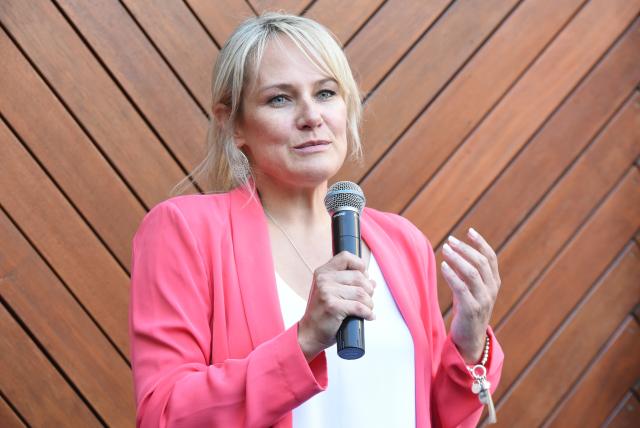
Charlotte Varcoe
THE issues regarding the cross-border communities between the South Australian and Victorian border should be included in a nation-wide Covid-19 inquiry, according to cross-border advocate Paula Gust.
Last week, Prime Minister Anthony Albanese announced the federal government would fund a Covid-19 response inquiry and make recommendations to improve response measures during future pandemics.
As a whole, the inquiry is expected to look into a wide range of impacts from the pandemic across multiple portfolios and communities.
It will also consider the findings of previous relevant inquiries and reviews and also identify “knowledge gaps” for further investigation.
Mr Albanese has appointed an independent panel of three people to conduct the inquiry which will consult with relevant experts with a diverse range of backgrounds and lived experience.
Ms Gust – who was a vocal advocate for cross-border communities during the pandemic- told the Naracoorte Herald she believed cross-border issues “must be a prominent part” of the inquiry.
“Everyone thinks a pandemic would never happen again but we never thought it would happen in the first place,” Ms Gust said.
“Nobody knew what they were doing and a lot of decisions were more reactive than proactive and nobody on the border was consulted regarding business, health, medical or school-wise.”
Ms Gust said she believed the issues of the cross-border communities should be a “major part” of the investigation in order to learn how to better deal with the issues in the future.
“The focus should be how it impacted border communities as I understand Melbourne’s lockdown was long and horrible but they were still able to go and see a doctor or have their breasts screened,” she said.
“Whereas we were trapped along the border not only from going across to where we would usually go but we were trapped because if we would go any further into Victoria we would lose our privilege.
“We were affected just as much as everywhere else especially the farming communities as it was quite cruel with just the testing.”
Ms Gust said during the pandemic there were 26 weeks in a row where she got a Covid-19 test just so she could take her children to school or go grocery shopping.
“There was also a lot of segregation among the states because if you were from Victoria people did not want to stand next to you in the shops,” she said.
“It brought up a lot of things in our society that we should not have had to deal with and Victorians along the border really protected a lot of South Australia.
“We were that line of protection and through us doing the right thing and going through continual testing we were stopping Covid from getting into the state.”
Ms Gust said she would be “very surprised” and believed a lot of people would be “quite angry” if border communities were not included in the national inquiry.
She said even now the cross-border communities have ongoing mental health effects following the pandemic.
“There are so many people scarred from this and we don’t have a very robust mental health system in those regional areas,” she said.
“Add this on with people who have lost their jobs, had to change careers, we ourselves had to move interstate in the end but there was also the financial impact of businesses and families.
“It was really tough and there were also families who split up over it physically and with the pressure it put on everyone.”
Ms Gust said she would put her cross-border advocate hat back on and ensure cross-border communities were included in the inquiry.
“I will be getting in touch with a couple of politicians to make sure cross-border communities are included as it is absurd it is even questioned.
“I would also like to know if anything has been done or assessed on how we can do it better as hopefully it is not needed but if we don’t prepare for another pandemic it will be another knee-jerk reaction.”
The panel is expected to deliver a final report to the government, including recommendations, by the end of September 2024.







